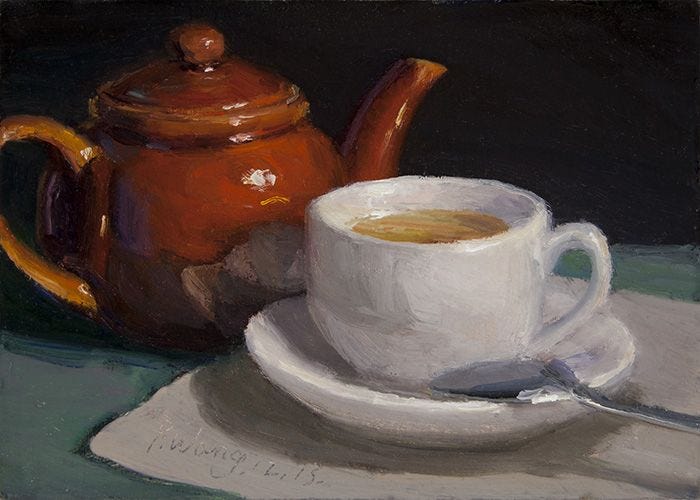Spilling tea?
When I was growing up, the expression was “spill the beans” (to give away a secret) or “let the cat out of the bag”. Recently I’ve heard more people talk about “spilling the tea”, and I wondered about why it was tea being spilled.
Merriam-Webster came to my aid, tracing a history of the expression through RuPaul’s Drag Race, and all the way back to Midnight in the Garden of Good and Evil. I’m guessing most people using it online have little idea of this background!
I had assumed it came from African-American vernacular, like other expressions I’ve seen white people start using (and writing) very recently. (Such as “it’s been a minute,” which I don’t think any white people said before maybe the last five years).
The tea-spilling phrase has made its way into essays in The Atlantic, with multiple variants seen online (sipping tea, or strong tea - for a hard truth - etc).
John McWhorter is an expert on this, and has written about white people appropriating black slang before. He argues that most of common vernacular has black cultural origin, if unacknowledged.
What I find fascinating (and I’ll admit, annoying) is the way terms slip into mainstream use and get treated as timeless, so they pop up in movies and tv shows set in the past (so you’ll have white characters in 1980 saying “I got this” or “I got you” for example). It’s a real pet peeve of mine in TV scripts, though peak annoyance came with a character saying “OK” in London in 1815.
Slang moves generationally, and perhaps some writers don’t realise how much of their daily language is slang that will move out of the cycle eventually (nobody describes anything as “the bee’s knees” these days). Dictionaries of historical slang can be fascinating in how terms can have disappeared completely from use.
When I was a kid people still spoke of needing to book it (to leave, to hurry), to get real (can’t remember when I last heard that), because they were totally bugging (overreacting, having a crisis). So the tea will probably cease to be spilled soon enough.



